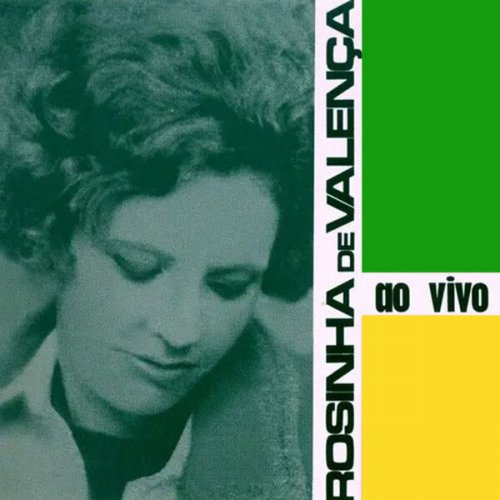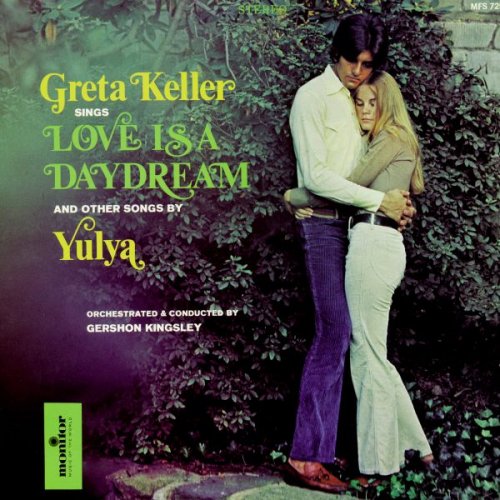Ann Mackay - Handel: Silete venti, Agrippina condotta a morire (1991)
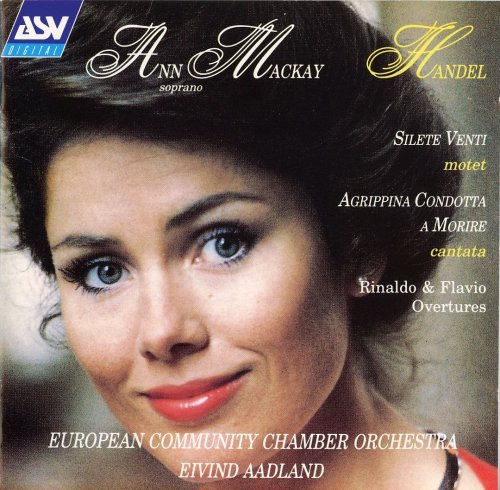
Artist: Ann Mackay
Title: Handel: Silete venti, Agrippina condotta a morire
Year Of Release: 1991
Label: ASV Digital
Genre: Classical, Vocal
Quality: FLAC (image+.cue,log,scans)
Total Time: 01:04:12
Total Size: 309 Mb
WebSite: Album Preview
Tracklist: Title: Handel: Silete venti, Agrippina condotta a morire
Year Of Release: 1991
Label: ASV Digital
Genre: Classical, Vocal
Quality: FLAC (image+.cue,log,scans)
Total Time: 01:04:12
Total Size: 309 Mb
WebSite: Album Preview
SILETE VENTI, motet for soprano & strings in B flat major, HWV 242
01 Symphonia and Aria: Silete venti
02 Aria: Dulcis amor
03 Recitative: O fortunata anima
04 Aria: Date serta
05 Aria: Alleluja
06 RINALDO, opera, HWV 7 - Overture
AGRIPPINA CONDOTTA A MORIRE (Dunque sarà pur vero), cantata for soprano, 2 violins & continuo, HWV 110
07 Recitative: Dunque sarà pur vero
08 Aria: Orrida, oscura, l’etra si renda
09 Recitative: Ma pria che d’empia morte
10 Aria: Renda cenere il tiranno un tuo fulmine crudel
11 Recitative: Sì, sì, del gran tiranno
12 Aria & Recitative: Come, o Dio! bramo la morte
13 Aria: Se infelice al mondo vissi
14 Recitative: Trema l’ingrato figlio
15 Aria: Su lacerate il seno
16 Reciative: Ecco a morte già corro
17 FLAVIO, opera, HWV 16 - Overture
Performers:
Ann Mackay (soprano)
European Community Chamber Orchestra
Eivind Aadland (director)
Into the clean, relaxedly idiomatic playing of the European Community Chamber Orchestra, the sweet, boyish voice of their Guest Singer of the Year 1990 enters, stilling the equinoctial winds at the start of Handel's Silete venti. So far, so good. Ann Mackay's voice is, as ever, intelligent and true. But it also reveals itself as somewhat matt of surface and less than lively of imagination, as the motet continues with an ardent, implicitly (that is, harmonically) erotic plea to be pierced through by Christ. Her tender placing of each note, and her deftly turned ornamentation stop short of biting against Handel's harmonies, and although Mackay is agile enough in the presto ''Alleluia'', its sequences unfold only blandly.
It is something of a relief to have this programme broken up and signed off by two Handel overtures, Rinaldo and Flavio. They are not outstandingly played, but are dutifully vibrato-free and ventilated by an engaging oboe solo.
For Agrippina condotta a morire, Mackay sounds more keenly engaged. This secular cantata, written when Handel was household musician to a Roman nobleman has, as TK points out in her apposite sleeve-note, the lilting melody and structural drama of a true operatic scena. Mackay, with renewed energy and considerable grace, focuses on its shifting emotions from vengeance to tenderness, from fury to love and back again, even if her vacillations of temperament are less powerful than in Handel's writing.'
It is something of a relief to have this programme broken up and signed off by two Handel overtures, Rinaldo and Flavio. They are not outstandingly played, but are dutifully vibrato-free and ventilated by an engaging oboe solo.
For Agrippina condotta a morire, Mackay sounds more keenly engaged. This secular cantata, written when Handel was household musician to a Roman nobleman has, as TK points out in her apposite sleeve-note, the lilting melody and structural drama of a true operatic scena. Mackay, with renewed energy and considerable grace, focuses on its shifting emotions from vengeance to tenderness, from fury to love and back again, even if her vacillations of temperament are less powerful than in Handel's writing.'
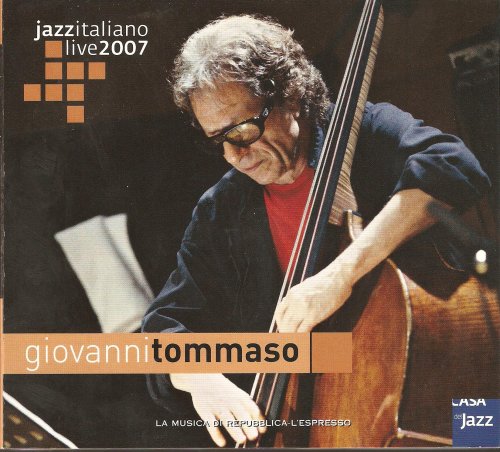
![Compro Oro - Lamellomania (2026) [Hi-Res] Compro Oro - Lamellomania (2026) [Hi-Res]](https://img.israbox.com/img/2026-01/29/z9k9v7p2kvdnm71ct3xbsyljw.jpg)
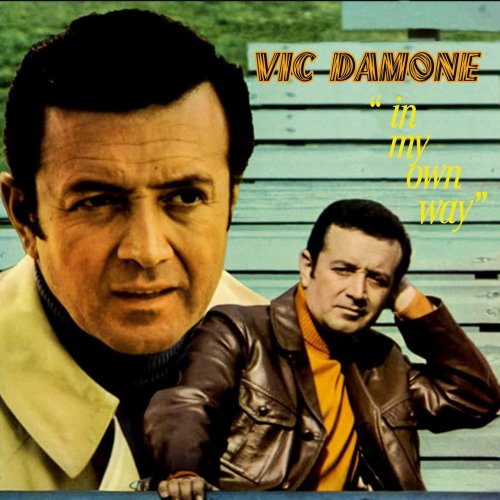
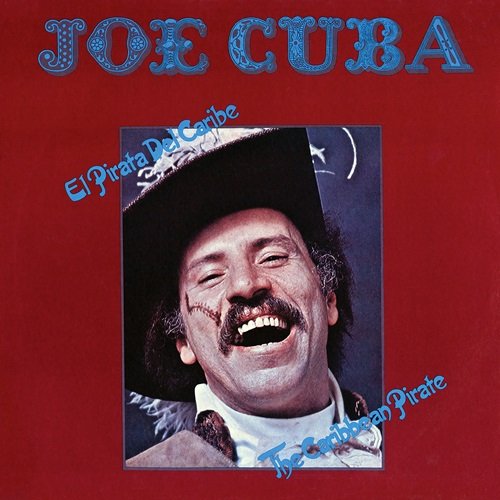
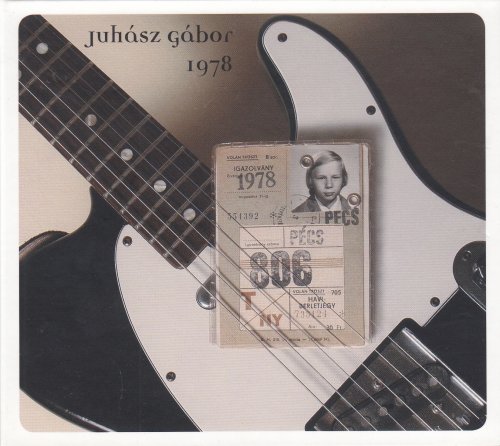
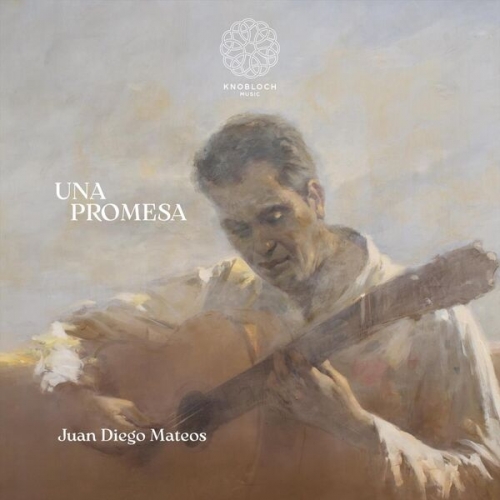
![Trio Sfera - Verschwiegene Lieder (2026) [Hi-Res] Trio Sfera - Verschwiegene Lieder (2026) [Hi-Res]](https://img.israbox.com/img/2026-01/27/mzcefu1hpksqh3xpkqm28dxh5.jpg)
